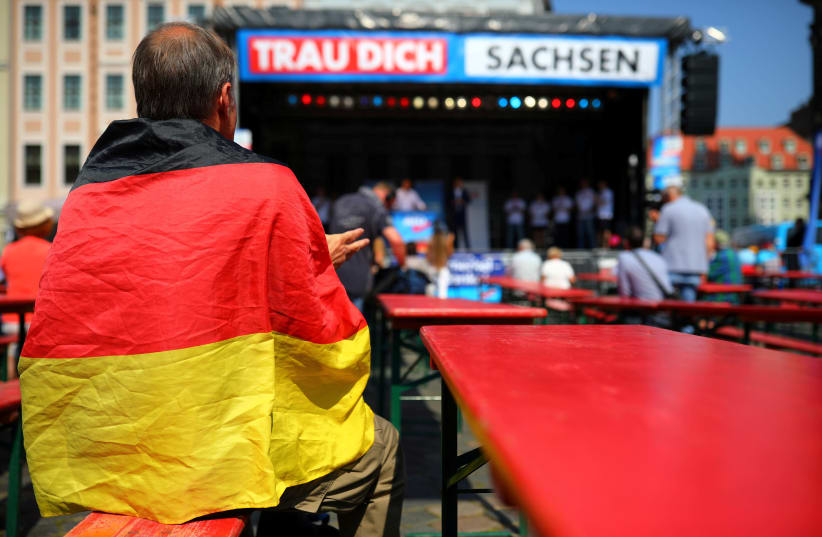BERLIN – Two new surveys show that about one in five Germans – and more than half of right-wing populists – think the Holocaust gets too much attention here.
The surveys, released on the eve of Holocaust Remembrance Day, come amid warnings. Reflecting on the Nazi’s crimes was a priority in post-war West Germany, but “this consensus is crumbling,” Josef Schuster, head of the Central Council of Jews in Germany, said Sunday in a statement on the eve of Holocaust Remembrance Day.
“If we do not take countermeasures now, our democracy could be seriously endangered,” Schuster said, urging a greater commitment to Holocaust education.
Germans mark the anniversary of the liberation of Auschwitz – as well as other significant dates in Holocaust history throughout the year – with a wide range of programs, both official and private.
And this is appropriate, said 45 percent of the 2,052 Germans surveyed by the Yougov Institute on Jan. 22-23 for the German news agency dpa. But while this survey found that 24 percent of respondents thought the topic should get more attention, 22 percent felt the opposite.
A full 56 percent of those who identified with the far-right, anti-immigrant party “Alternative for Germany,” agreed that Holocaust remembrance is given too much weight. In recent years, prominent AfD politicians have decried Berlin’s Holocaust memorial as “a monument of shame” and called the Third Reich “a mere bird-sh** in more than 1,000 years of successful German history.”
AfD has become a challenger to Germany’s mainstream political parties since it was founded in 2013.
Even more stark results came in a survey, released Friday, of 1,018 people by the polling institute Infratest for the Deutsche Welle news agency, which found that 72 percent of AfD supporters agreed that Germans had done their remembrance duty and should stop obsessing over Nazi crimes. Supporters of the Green Party were the least likely to support that view at 13 percent.
Thirty-seven percent of all respondents said it was time to cease browbeating, representing a steady rise from 26 percent in 2018 to 33 percent in 2019.
On the other hand, 55 percent said they were fine with the current culture of remembrance, while 17 percent found that greater efforts should be made; 75 percent said a visit to a concentration camp memorial should be required by all schools.
Schuster urged greater efforts “to re-anchor the lessons of the Shoah in people’s minds. It is not just the future of the Jewish community that is at stake, but the future of Europe.”
